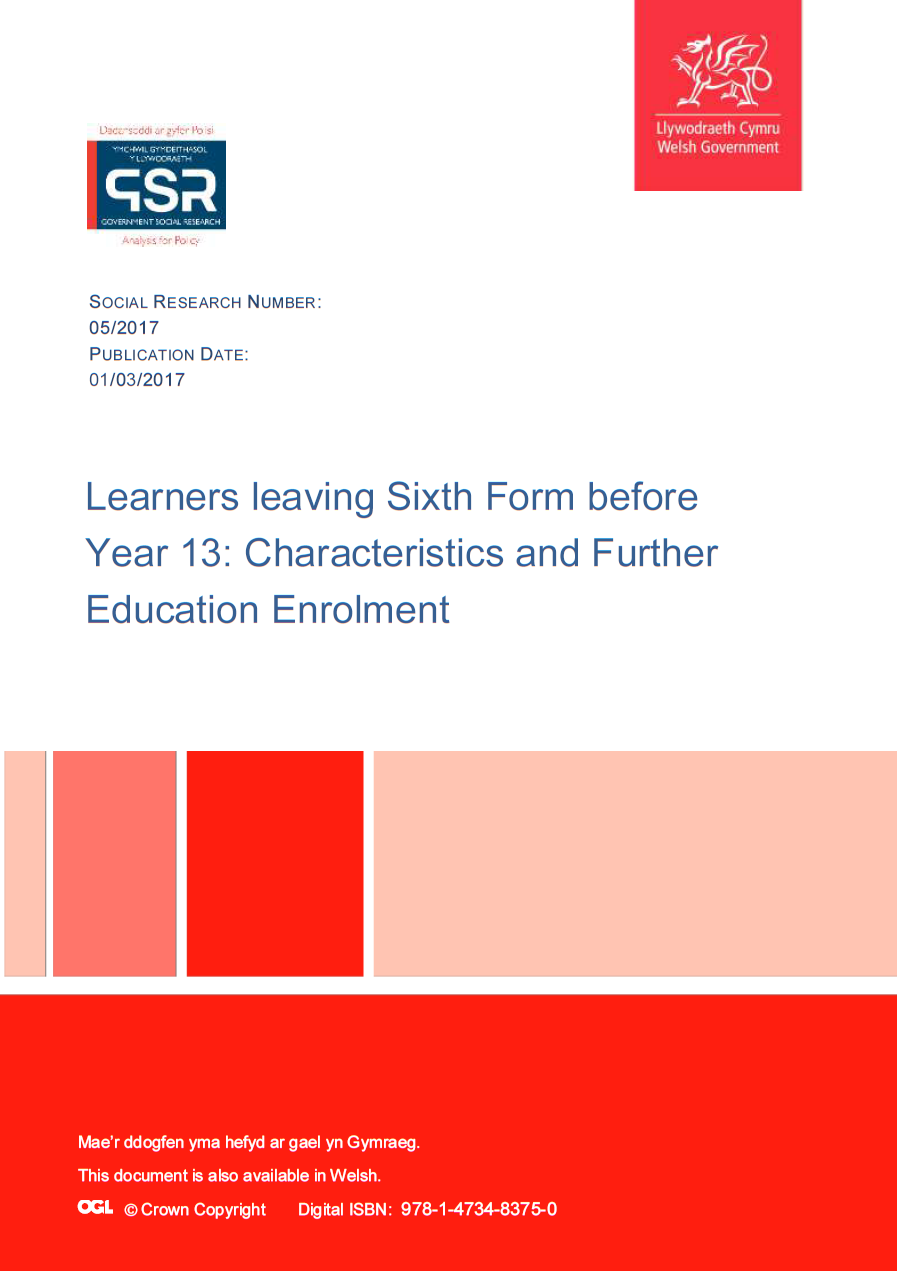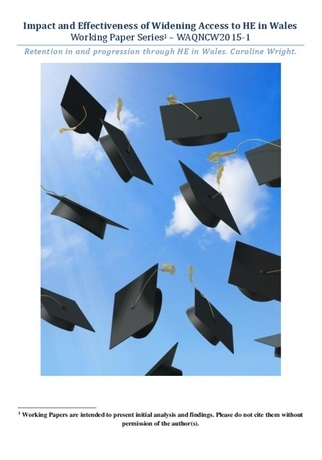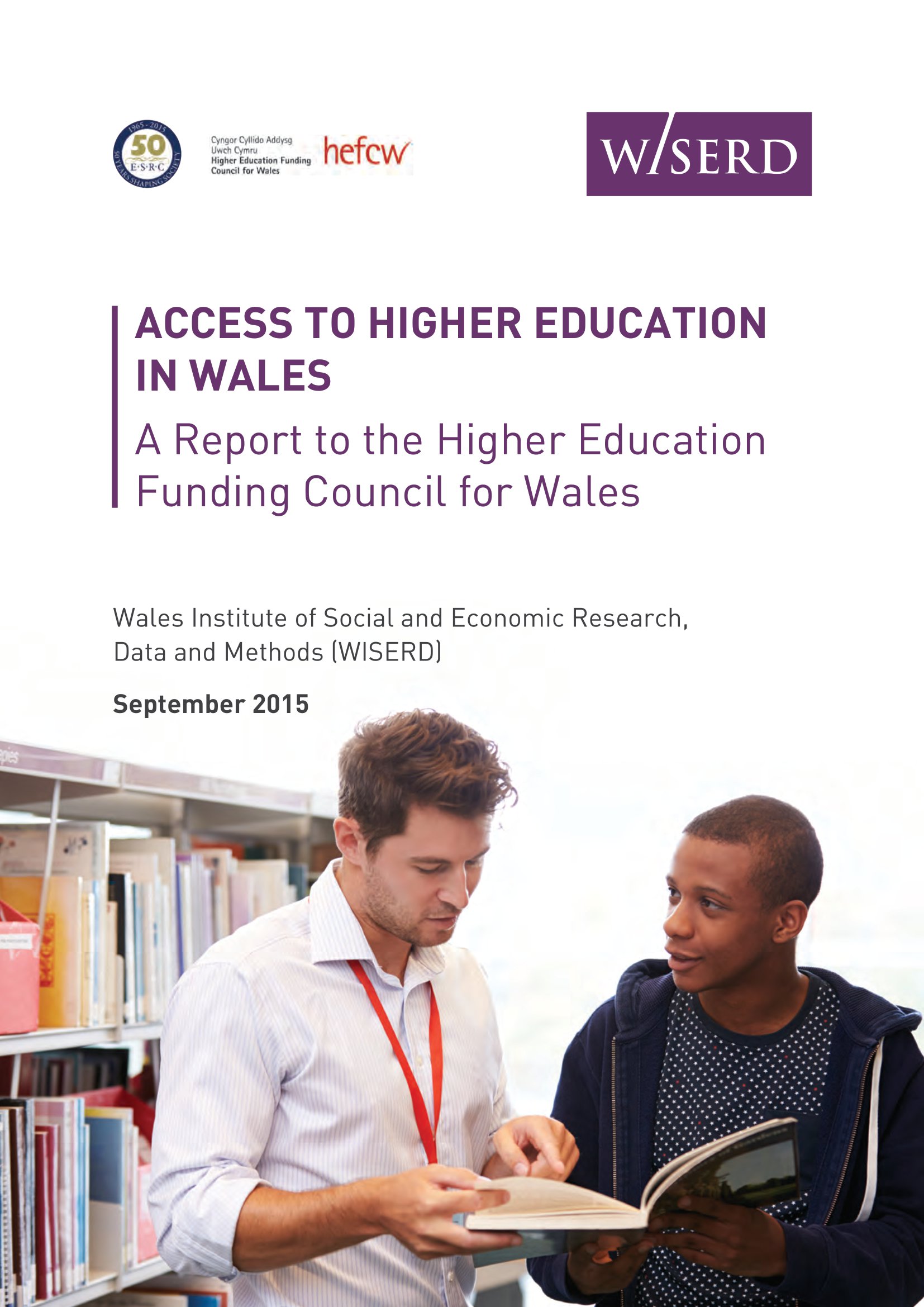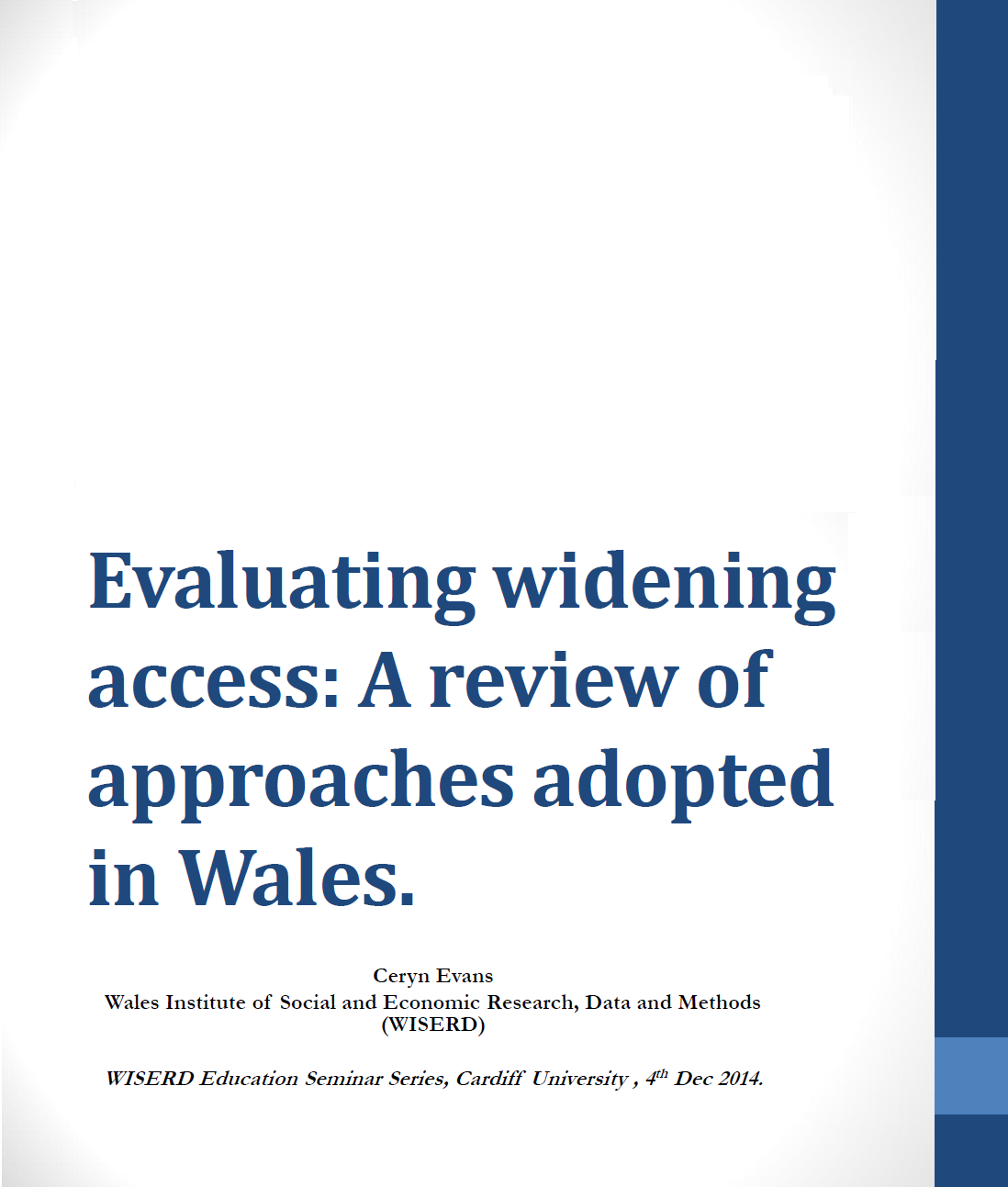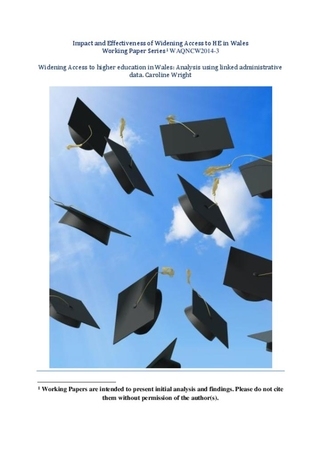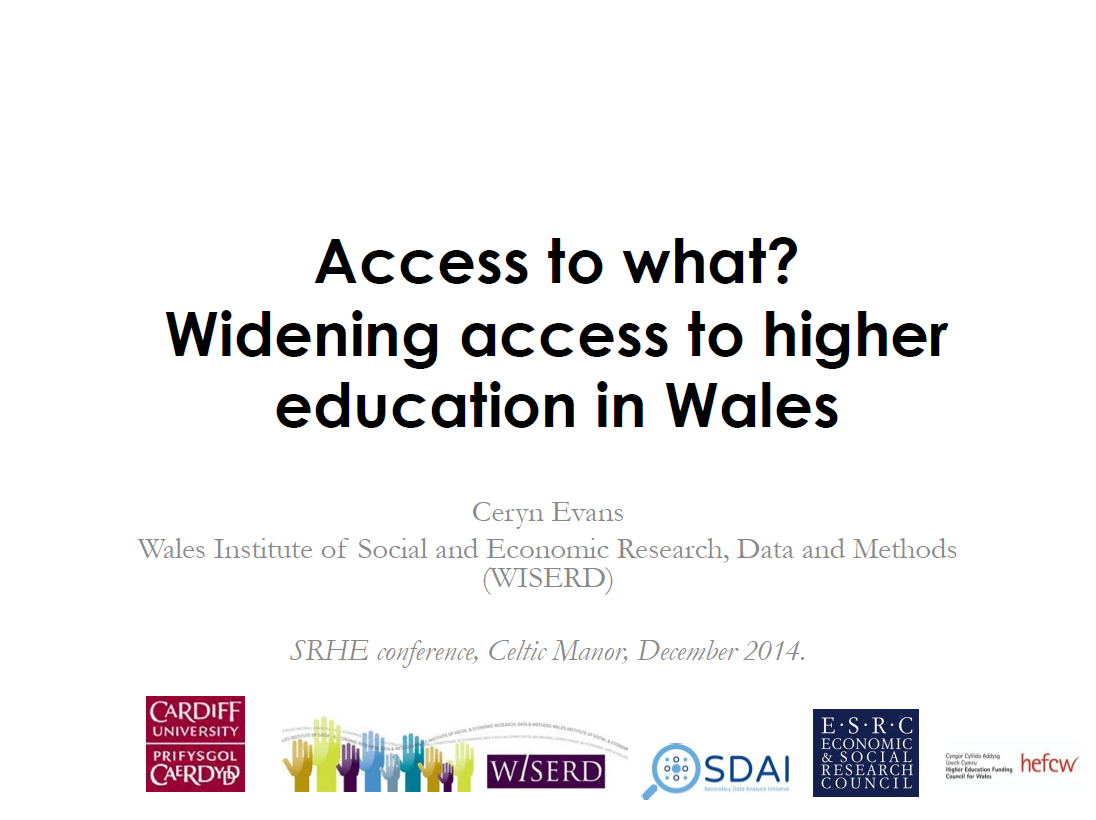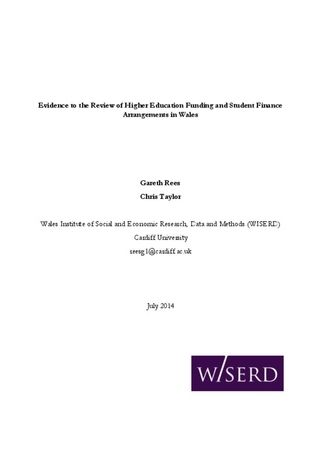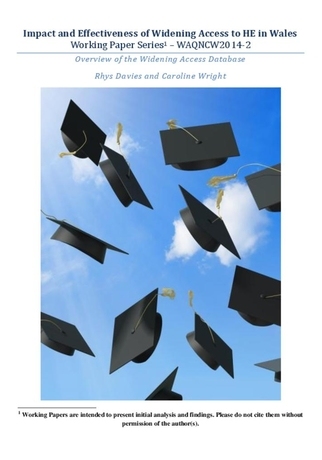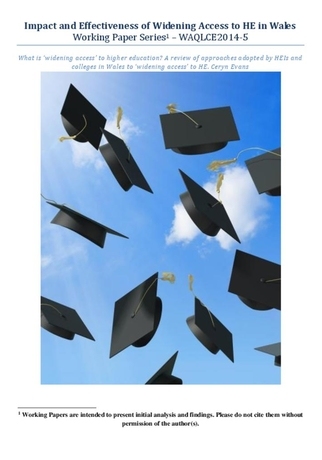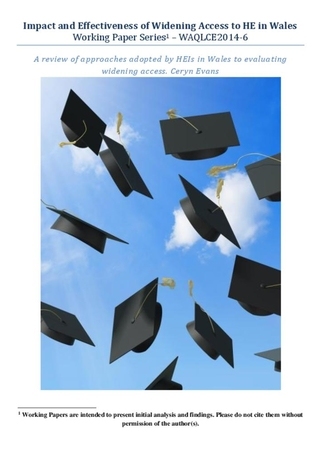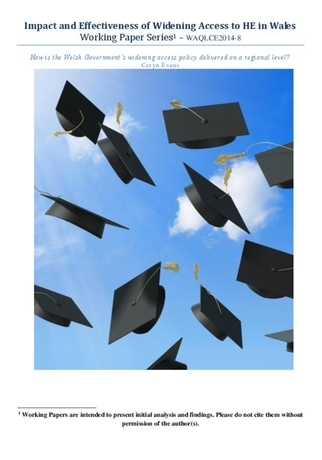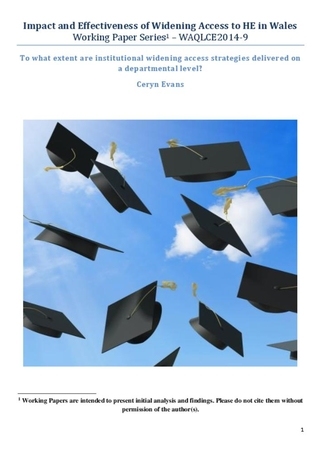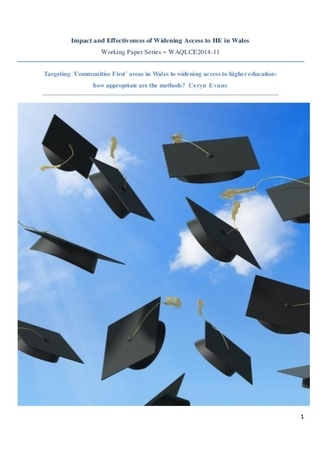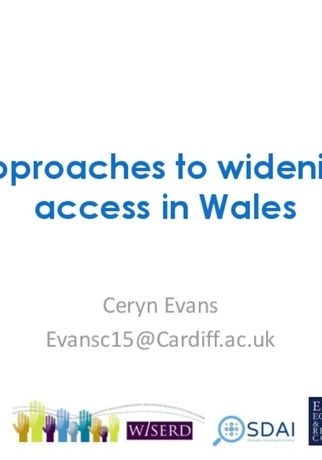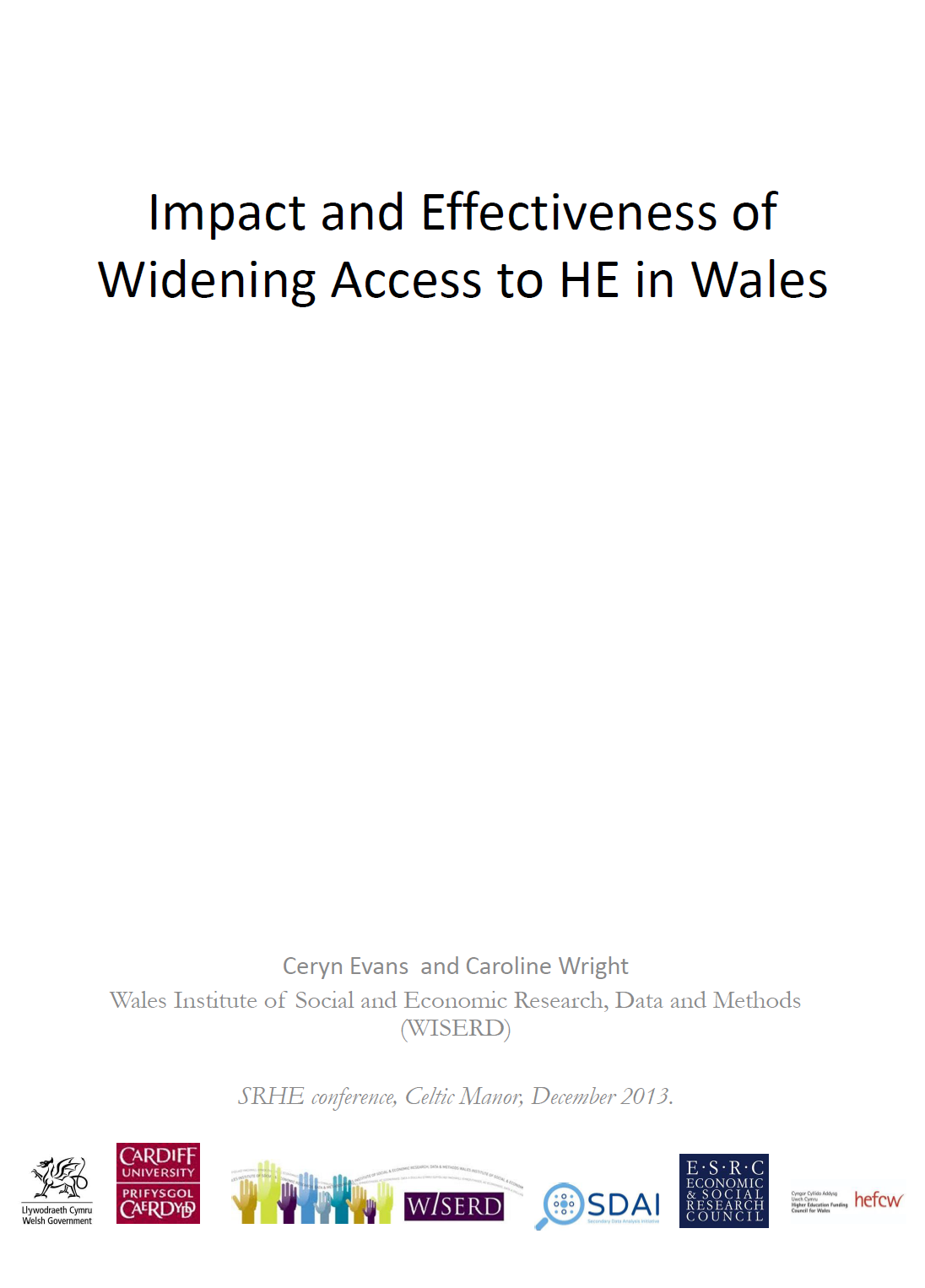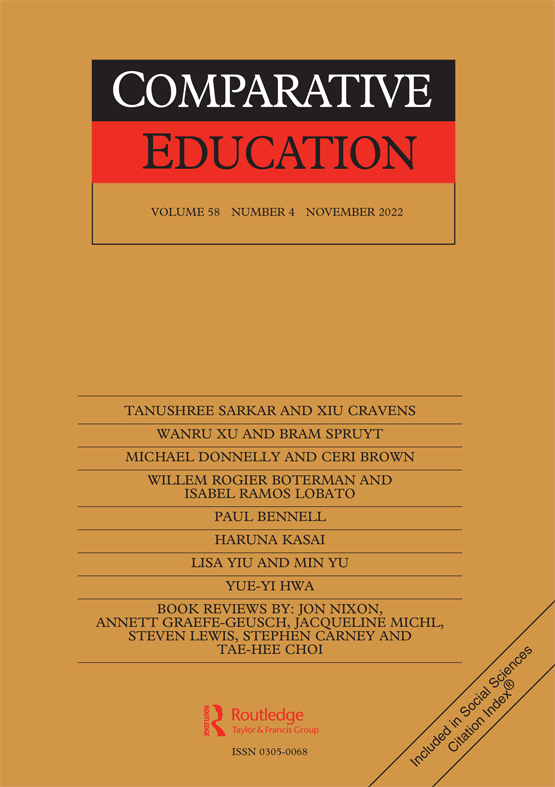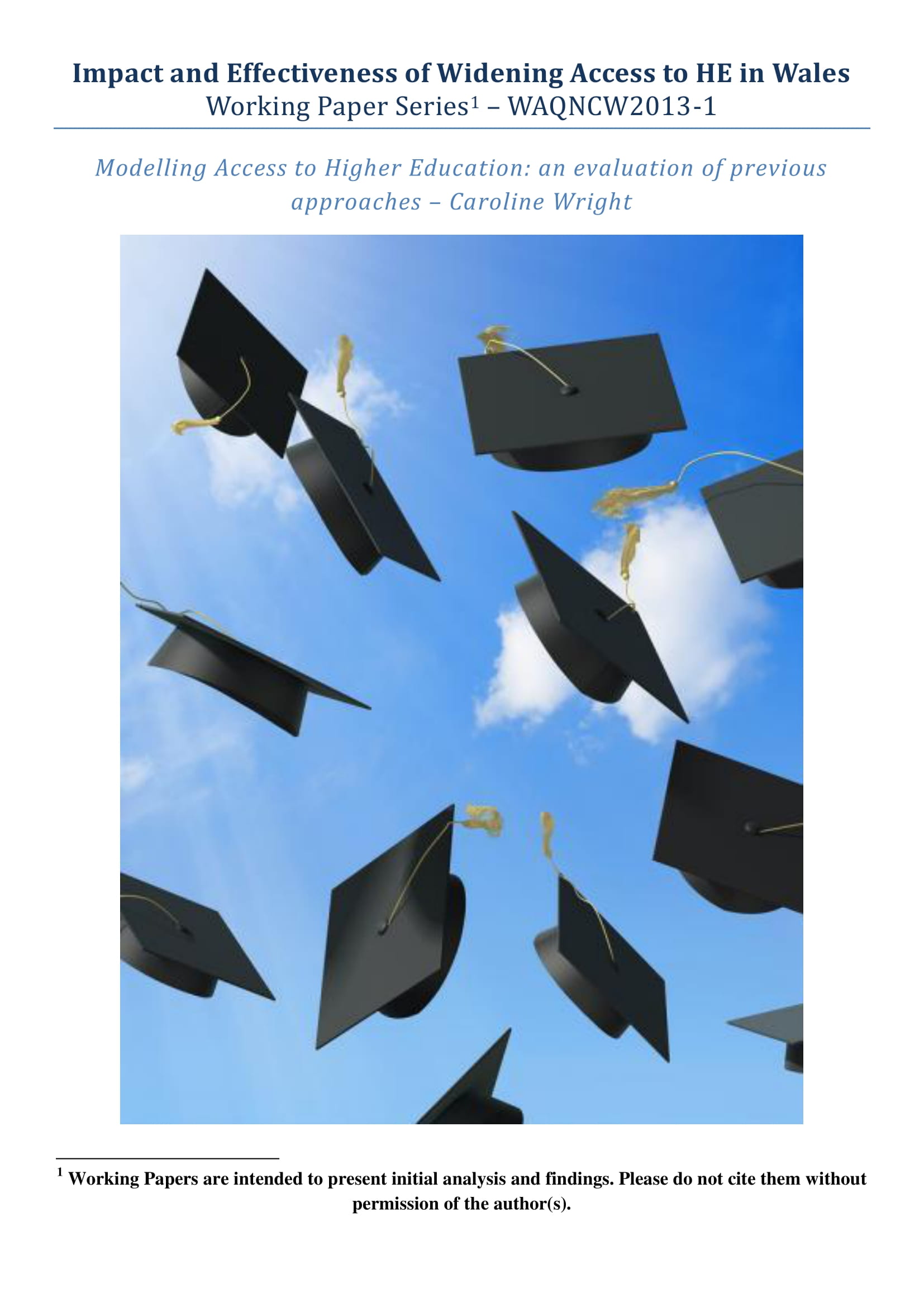The overall aim of the proposed research was to demonstrate the effectiveness of the secondary analysis of administrative data-sets to delineate patterns of participation in higher education (HE) and, thereby, to contribute to the development of policy and professional practice in widening access in Wales (and more widely). The project was based upon a collaboration between the Wales Institute of Social and Economic Research, Data and Methods (WISERD), the Higher Education Funding Council for Wales (HEFCW) and the Welsh Government (WG).
More specifically, the objectives of the proposed research were as follows.
- To assure the quality of three linked administrative data-sets: the National Pupil Data Base (NPD) for Wales; the Lifelong Learning Wales Record (LLWR); and data from the Higher Education Statistics Agency (HESA). These data-sets were made available by the WG.
- To explore the potential for extending this resource through the linking of further data-sets (for example, income data held by the Student Loans Company).
- To carry out – for the first time in Wales – a detailed descriptive analysis of the progression of individuals through compulsory education, into post-16 education and on to HE.
- To use statistical modelling to uncover the most significant determinants of entry/non-entry to HE, comparing the influence of, for example, the social characteristics of individuals, their previous educational attainment and their progress through the educational system. This sought to replicate and develop further the analysis of equivalent data for England by Chowdry et al. (2010).
- To conduct fieldwork, comprising documentary analysis and semi-structured interviews with key actors, to establish trends of change in Wales’s distinctive widening-access policies over time and to uncover their underpinning rationales. This was to be done for both national-level policies and for implementation within the HEIs. This fieldwork was resourced through additional funding from the HEFCW.
- To use the secondary data analysis as a robust, evidence-based framework to evaluate the effectiveness of the widening-access policies adopted in Wales and of the approaches to implementation adopted within the HEIs.
- To compare the effectiveness of the distinctive widening-access policies adopted in Wales with those in other parts of the UK and England, in particular.
- (To disseminate the scientific results of the proposed research through conference presentations and peer-reviewed publications.
- Building on the collaboration between WISERD, the HEFCW and the WG, to establish effective mechanisms for knowledge exchange and transfer. The results from the proposed research were to be fed directly into the deliberations of both the WG and the HEFCW on widening access that will be taking place over the coming few years especially intensively.
- To undertake capacity-building activities with the professionals within the HEIs who have responsibility for implementing widening-access strategies, with the particular objective of integrating the analysis and use of secondary data much more firmly into their day-to-day practice.
Associated Work
Evaluation of the Education Maintenance Allowance and Assembly Learning Grant (Further education)







